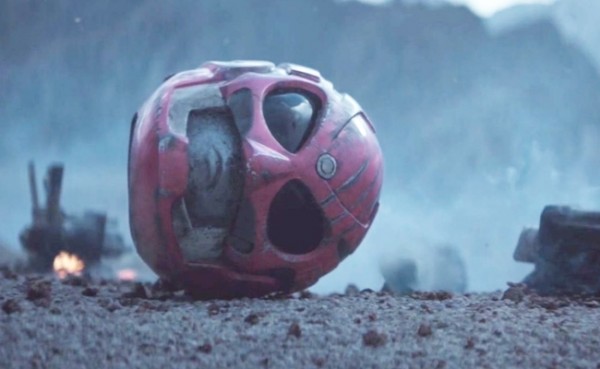Fan Made Power Rangers Film Shows the Limit of Copyright Law
Anybody remember the Power Rangers?
Power Rangers was one of the biggest children’s shows during the 1990s. The popular franchise was about a group of teens who protected the earth from alien invaders. Although Saban Brands had licensed footage from Super Sentai, a popular Japanese show, Power Rangers created original material to attract an American audience. The show was a huge hit and it continues its popularity even today. With over twenty seasons, Power Rangers is one of the most profitable children’s franchises ever made.
Although Power Rangers is primarily a children’s show, it has adult fans. One of those fans is Joseph Kahn, a long-time music video director. Kahn recently tried to pay homage to Power Rangers by creating an R-rated short film version.
Kahn’s vision of Power Rangers depicts the original teens as adults who suffer from PTSD. The film uses professional actors including James Van Der Beek and Katee Sackhoff. The tone is dramatically darker, with sex, drugs, and guns prominently featured. Kahn uploaded his film onto YouTube and Vimeo, where you can view the short film here.
Kahn’s R-Rated Power Rangers quickly gained Internet press. Saban Brands condemned the short film as a violation of its copyright. Response from the cast of Power Rangers was mixed; some of the actors thought the short was well-made while other cast members cringed as Kahn’s film drifted from the children friendly atmosphere of the franchise. YouTube and Vimeo removed the short film at Saban Brands request.
After Internet outrage and Kahn’s insistence that his film was fair use, Saban Brands negotiated an agreement with Kahn. The short film is back online, but it now comes with a warning that the video is not connected to Power Rangers and is intended for a mature audience.
Fan Fiction That Adopts Too Much of the Original Violates Copyright
Internet users largely supported Joseph Kahn, calling the copyright restrictions a violation of Kahn’s free speech rights. Kahn himself defended the film as an exercise of fair use. Although Kahn and Saban Brands have already settled, the dispute has raised questions about professional directors and actors making fan fiction of copyrighted works.
First, Kahn doesn’t have a free speech defense to alleged copyright violations. The Constitution is only a restriction on government action. Private companies are not bound by the First Amendment and Saban Brands, YouTube, and Vimeo are certainly private entities. Kahn doesn’t have a right to advertise his R-Rated Power Rangers film more than Saban Brands has a right to protect the image of their copyright franchise.
Since it’s established that Kahn doesn’t have a protected free speech right here, we only have to determine whether Kahn’s R-Rated Power Rangers was a fair use of Saban Brand’s property. The fair use question involves balancing a number of different factors, including the purpose and character of the work, the proportion of the use of the copyrighted material, economical impact, and the intent and motive of the defendant.
On one hand, the short film is very distinct from Saban Brands in tone. The film is extremely dark and gritty, with the characters suffering from PTSD, where the Power Rangers were always light and family orientated (if you ignore the violence). All the material in the film is original. Kahn produced all the scenes on his own, without any footage from Saban Brand. Kahn hasn’t outright taken any work from Saban Brands; the only issue is the use of the characters and the brand name.
However, a reasonable person could believe Kahn’s film was a product of Saban Brands based on the character of the short film, even though the tone is dramatically different. The film uses the same characters and costumes. The short film was produced by a professional director and cast by professional actors. Kahn’s work preserves some of the cheesiness of the franchise, including the over-the-top acting. Although the acting is over the top, the film takes itself very seriously. It’s difficult to classify the work as a parody. All these facts could lead a person, without any background knowledge, to believe the Kahn’s work was intended to be a continuity and thus a reproduction of the original Power Rangers.
The Reality of Our Legal System
I just went through a rather long drawn out discussion about fair use, but Saban Brands and Kahn have already settled their dispute. This case never went to court. It’s important to note that one of the factors was intent and motive of the defendant. A prolonged court battle would have damaged Kahn’s reputation with producers. A protracted court battle would have drained Saban Brand’s resources.
The reality of our civil legal system is that trial is rarely the correct answer. Although lawsuits are always being filed, most of them never make it before a jury. It’s ironic that a dispute over a franchise that portrays violence to children is ended merely by talking things out.



Comments